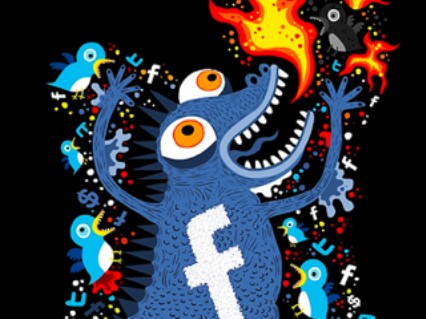
Twitter, while perhaps not yet a utility like water or electricity has a better chance than Facebook of surviving “platform fatigue” because of its naturally distributed architecture and its simplicity.
Thursday’s Twitter IPO was, by most any metric, a resounding success.
Shares of the company, which IPO’d at $26, closed the day up 73% to $44.90. Perhaps investors were emboldened by Facebook’s recent lift back above its IPO price, to a market cap of more than $115-billion. Twitter’s value, at Thursday’s close was $24.4-billion.
These are our true social media heavyweights, and there is a wide gap between their valuations, even if we only have the small sample size of one day of trading in Twitter. My take? I have used Twitter since 2007 and I believe it is the most important social network, even more important than Facebook. Why? Platform fatigue.
Don’t know what Platform Fatigue is? You do. You use Facebook to share personal stuff with your closest 300 friends (8600 friends if you are under 18). Your Linkedin profile has your serious face picture for prospective employers. The picture of the socks your grandma knitted you for Christmas goes on Pinterest. The shot of mussels in white wine with garlic and tarragon gets posted on Instagram. Exhausting: a life lived in fear of accidentally posted tarragon to Linkedin. Who would hire you?
Then there’s Twitter. But wait, isn’t Twitter just another platform? The one where people type banal descriptions of their daily activities with annoying hashtags? “Pancakes for Breakfast. #maplesyrupforever ?
Well yeah, on the surface. Early takes on Twitter described it as your Facebook update without pictures. That was, in strict terms, accurate. But it underestimated the way the service worked its way into the nooks and crannies of the internet, and how democratic, immediate and downright useful the service has since become.
Twitter is social media broken down to its very core. Once you enter Twitter, through the site, its app, or even Facebook or Linkedin, tellingly, you immediately and inherently enter a platformless world. Everyone can see your tweets. There is no filter of a the walled garden that is Facebook. This is why your “soft and friendly” local Action News team will recount Piers Morgan and Jeremy Clarkson’s recent Twitter spat; it’s public and anyone can weigh in.
But that is the side of Twitter that is over reported.
Twitter is also about Sohaib Athar, who goes by the handle of @ReallyVirtual. He, somewhat unwittingly it seems, live-tweeted the raid in which Osama bin Laden was killed in 2011.
“Helicopter hovering above Abbottabad at 1AM (is a rare event).” tweeted Athar.
“He didn’t realize that he’d been tweeting about a top-secret attempt to kill an internationally wanted terrorist until nine hours later,” noted Mashable.The real impact of Twitter hit home after Athar realized he just scooped Wolf Blitzer by a factor of a hundred.
“I am JUST a tweeter, awake at the time of the crash,” he semi-apologized for his newfound fame and thousands of new users. “Not many twitter users in Abbottabad, these guys are more into facebook. That’s all.”
In a recent New Yorker profile about Twitter co-founder Jack Dorsey author D.T MAX described Twitter this way:
“It’s a public utility, like water or electricity.”
Of course, water and electricity both charge a fee for use. Twitter’s value proposition, for investors is still up in the air. I use Facebook’s Promoted Posts and Google Adwords and find both ad supremely good. Twitter’s Promoted Tweets? The jury is out.
Chuck Jones, writing for Forbes noted that at 105% year-over-year growth Twitter’s revenue is growing faster than Facebook’s was at the time of its IPO. But Twitter is losing money: the company reported a loss of $69m in the first six months of this year on revenues of $254-million.
Can Twitter become profitable? My guess is that it will and that the timeline will surprise many people the way Facebook’s move into mobile was a swift and decisive response to doubters. The question is can Twitter become profitable without destroying the user experience? My bet is they have a better chance than Facebook, which may be flirting with the same kind of plan that made MySpace ripe for competition. It’s already driving away teenagers.
Twitter might not yet be a utility or electricity, but it has a better chance than Facebook to survive the real threat of “platform fatigue” because it matches the virality of that site, but does so with an architecture that is distributed and open by nature.
______________
Leave a Reply
You must be logged in to post a comment.



 Share
Share Tweet
Tweet Share
Share




Comment